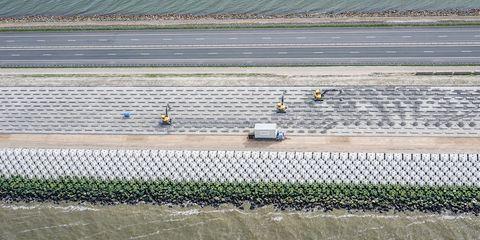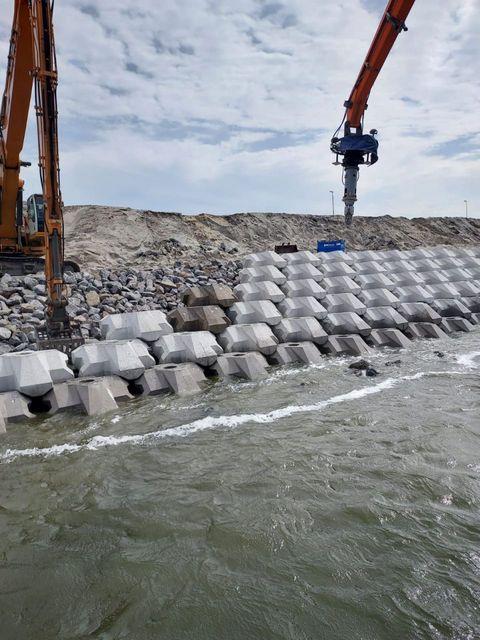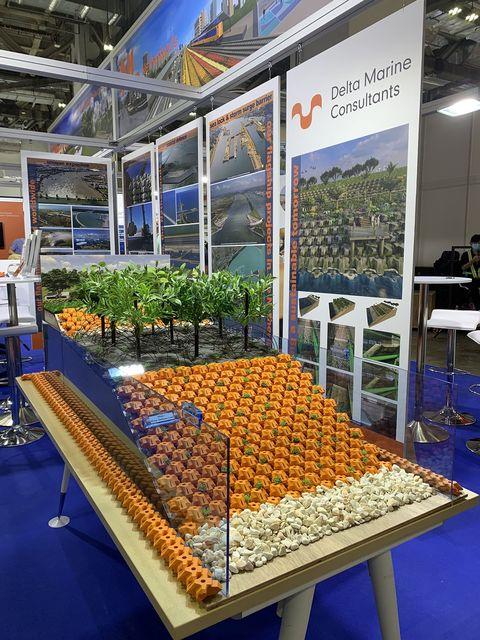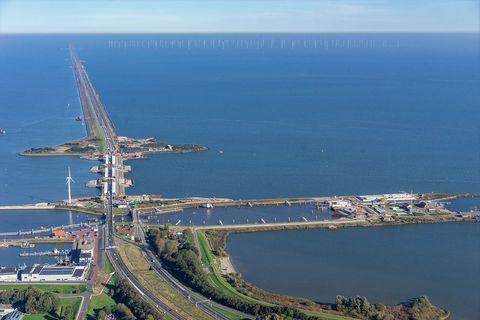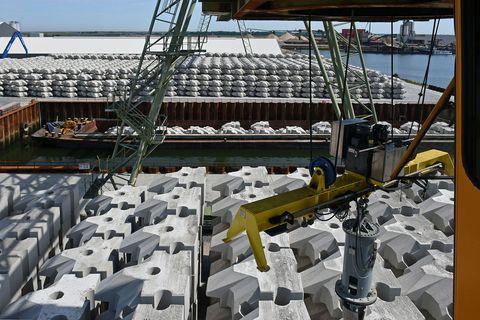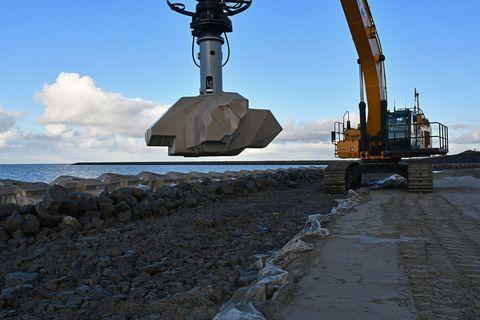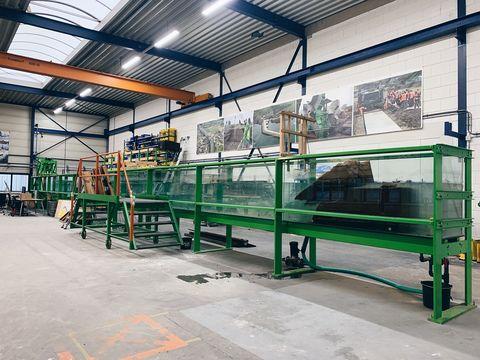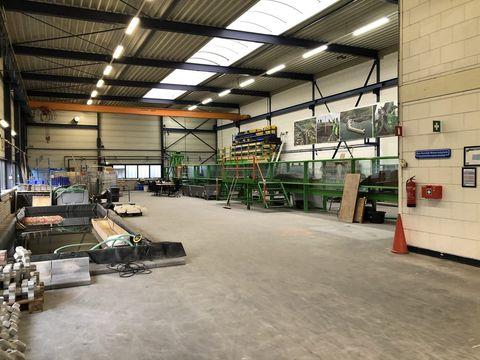DMC to explore feasibility of modular coastal protection system in Singapore
Modular system is based on DMC’s proven XblocPlus solution for coastal protection, which will be tailored to suit Singapore’s wave climate and local site conditions
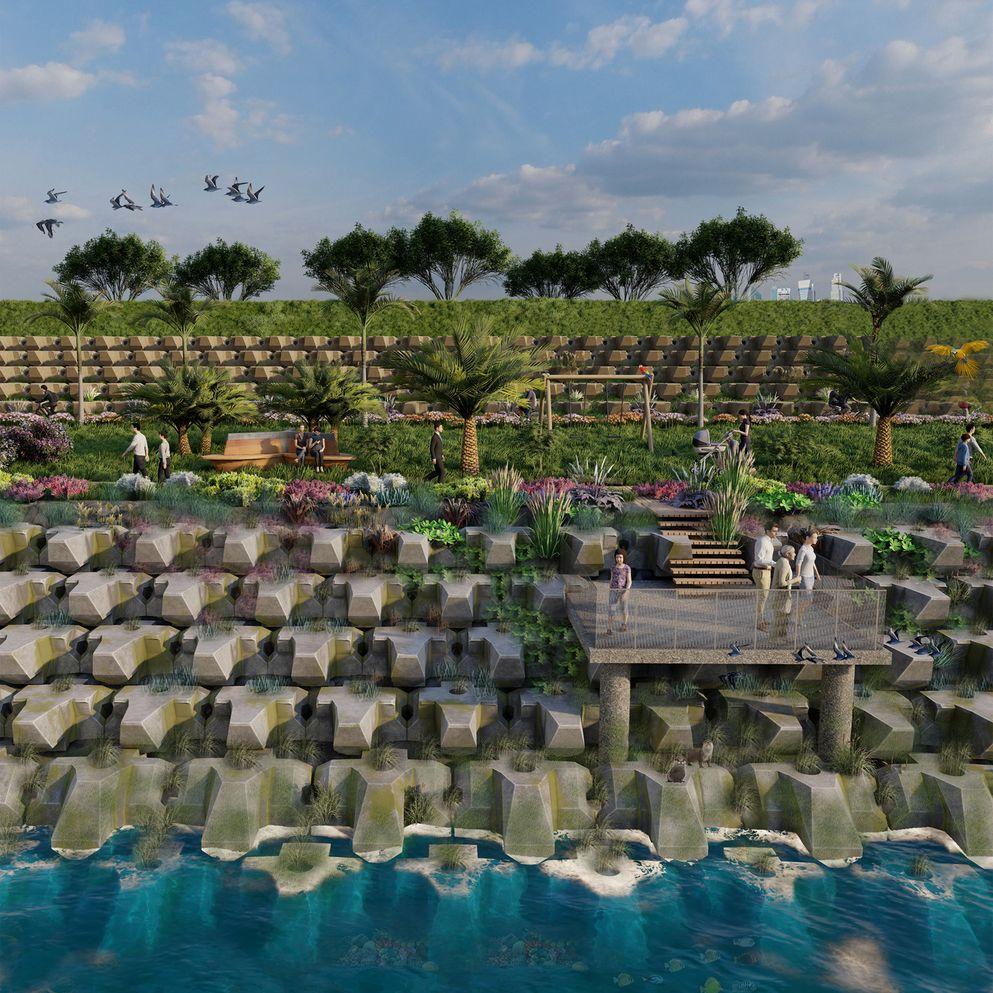
Artist’s impression of DMC’s proposed XBlocPlus solution for the Singapore coastline
Singapore, 20 June 2022 – DMC will work with national coastal protection agency PUB to assess the feasibility of implementing its modular system, XblocPlus, along suitable sections of Singapore’s coastline to tackle sea level rise.
DMC was one of four winners of PUB’s Global Innovation Challenge 2021, in the challenge category that sought innovative solutions for coastal protection. The proposed solution is a further developed version of XblocPlus, a single layer concrete armour unit placed in a regular pattern along the shoreline to provide long-term and reliable protection.
XblocPlus’ advantage lies in a flexible and scalable design which minimises land take, as well as the potential to integrate with urban developments or natural habitats. It offers resilience to climate change and can be adapted to promote development of marine life within the system.
First developed in 2002, DMC’s modular system has been successfully applied in more than 40 project locations across 30 countries globally, including in the Asia-Pacific region. Most recently in the Netherlands, the system was implemented at the Afsluitdijk, a 32km-long coastal defense structure that has been reinforced to withstand extreme storm events.
As part of the seven-month proof-of-concept trial commencing in June, DMC will embark on an assessment of Singapore’s coastline to identify potential sites where XblocPlus could be implemented. The concrete units will be designed specifically to suit Singapore’s wave climate, with DMC also exploring ways to minimise material usage and enhance the system’s integration with local site conditions. For instance, XblocPlus can function as part of a hybrid coastal protection measure integrated with nature elements such as mangroves or fronting a waterfront boulevard as part of a multi-functional coastal development.
The last stage of the trial involves physical model tests of the proposed design for performance validation and stability assessment in simulated wave conditions. Testing will be conducted at DMC’s wave flume facility located at its headquarters in the Netherlands.
Mr Yang Zi Qian, Director of DMC Singapore, said: “Singapore’s challenges in adaptation range from constraints such as limited land for retreat, highly-diversified coastline and the need to preserve our natural habitats. DMC’s proven expertise and in-depth local knowledge enable us to translate the global experience of our innovative system into a customized solution that works for Singapore’s coastline.”
Mr Bas Reedijk, DMC Netherlands’ Head of Coastal Engineering and Water Management Department and the inventor of the original Xbloc solution, said: “The Afsluitdijk and other international coastal adaptation projects we undertook gave us valuable takeaways to continuously develop our innovation, adapting to future needs. Working in tandem with PUB under its Global Innovation Challenge, we have the opportunity to translate knowledge drawn from our global experience to a locally adapted solution that helps Singapore in its major move towards climate resilience.”

